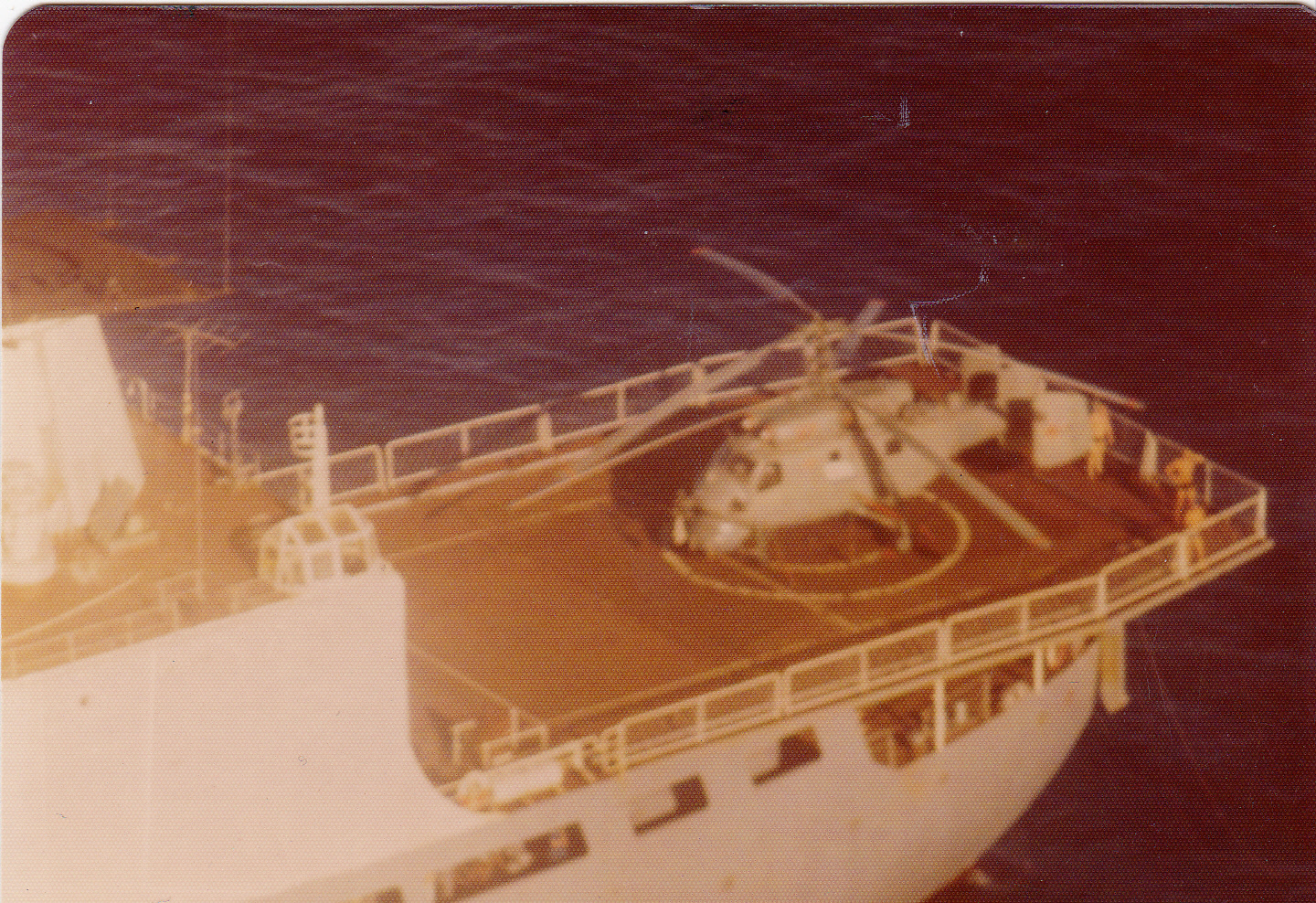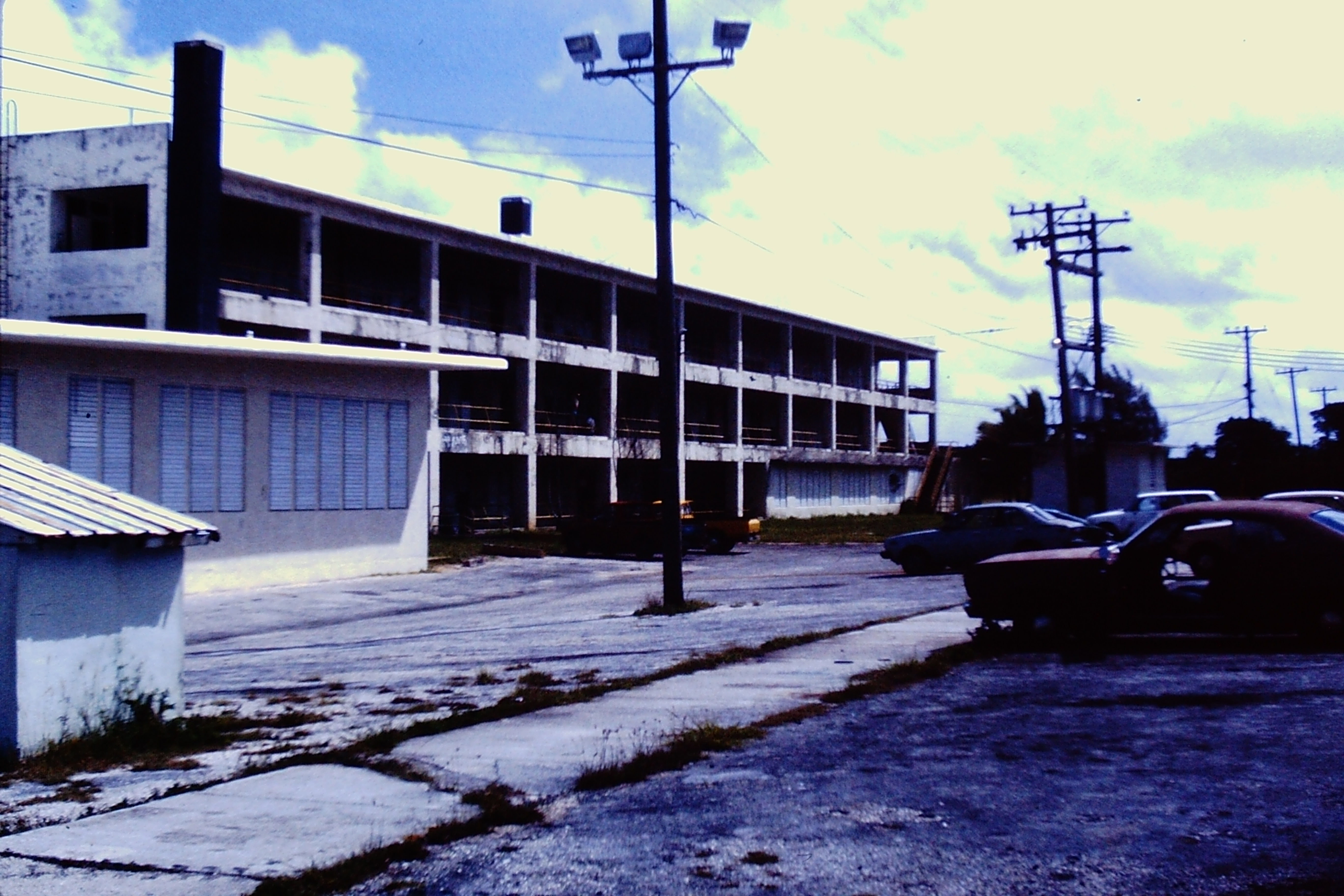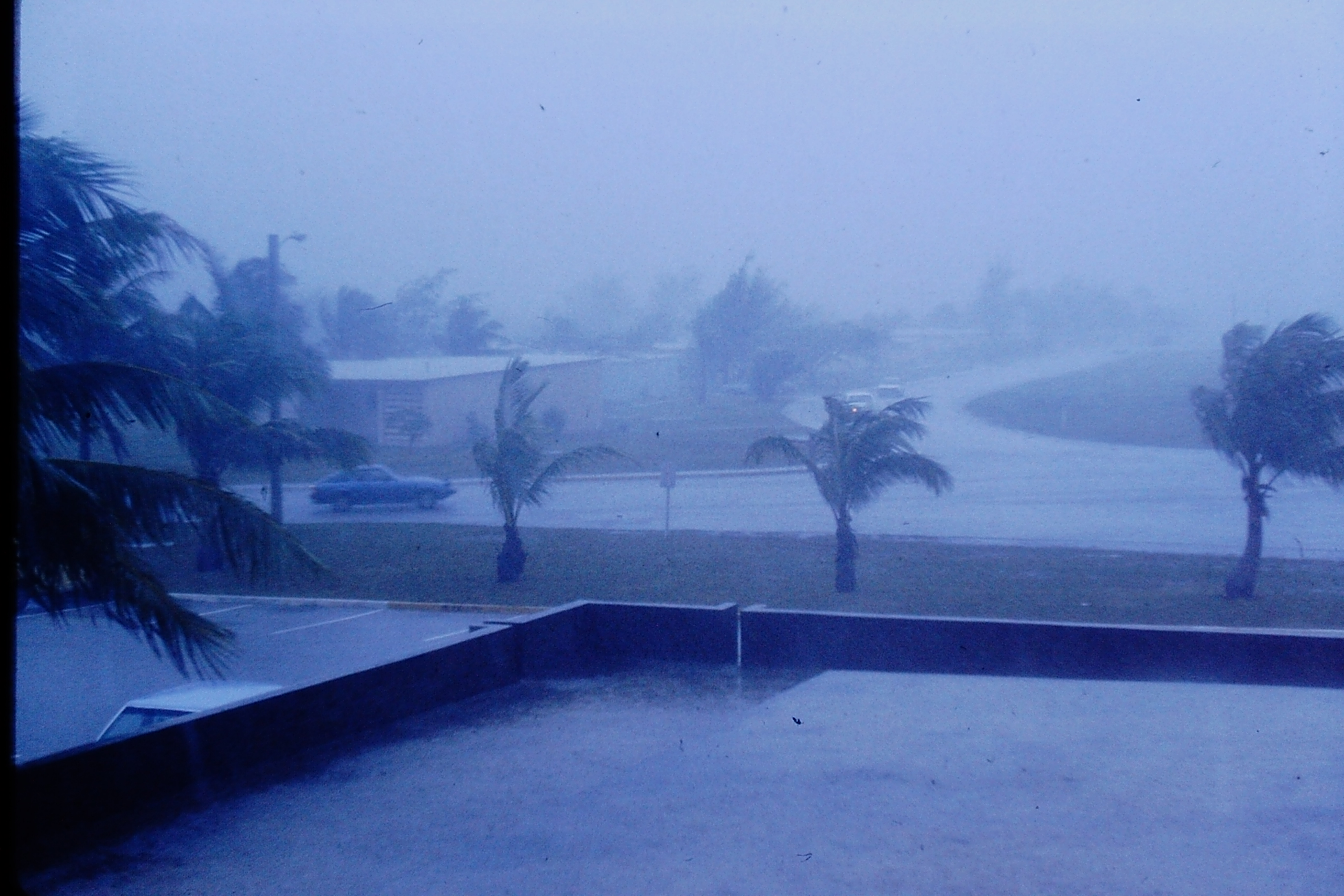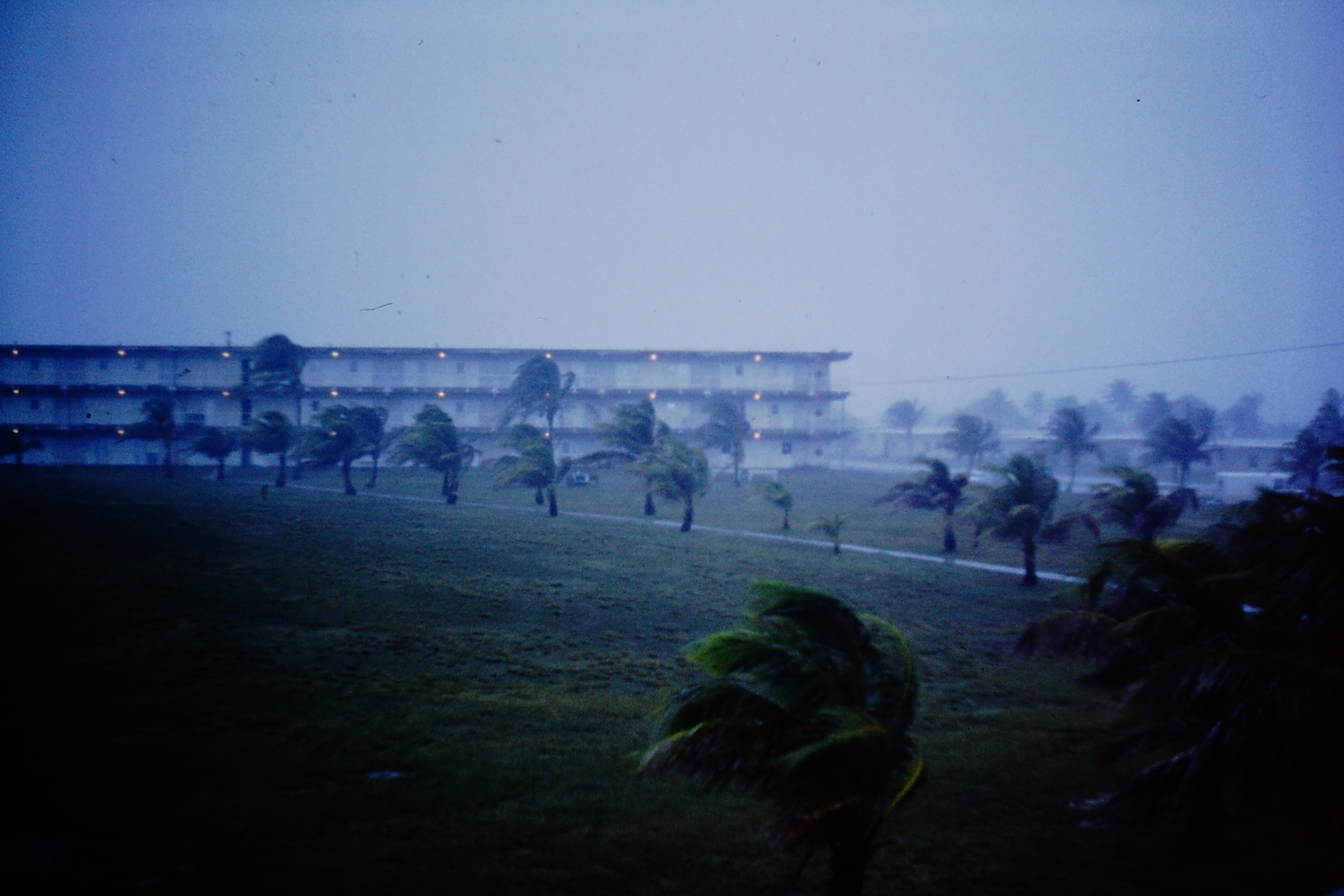
 |
|
| BOA 6-80 MI-24 |
At the 6985th, Eielson AFB, in the spring of 1980, we knew that we would soon be needed to fly an RC-135S Cobra Ball, Burning Star mission against a hitherto untargeted adversary in the Pacific Broad Ocean Area (BOA). Initially, we were to deploy to Hickham, Hawaii. Everybody signed up to go. Such an exotic assignment had once been dubbed "Project Bronze Warrior" by Rich Ryan, giving it a tropical mystique, and crew members came out of the woodwork to get on the list. Even so, that unofficial name make no traction except among the Burning Star cadre at Amber Hall. Plans were quickly made as the time crunch began to pressure mission managers. Too soon, however, those plans were burn bagged and revised plans were made.
The next plan was to billet the aircrew at the Rainmaker Hotel on Pago Pago, American Samoa, reportedly a Hilton property and also an exotic-sounding assignment at a new location. Again, many of those qualified and able signed up to go. Unfortunately, on April 17th, late in this scheduling effort, a US Navy P-3C Orion crashed into the wing of the hotel we were to reserve, killing 2 of 4 aircrew. Scratch plan #2. The whole effort began to suffer from the FUBAR syndrome we all recognize so well, and mission volunteers began to drop out.
At the last minute, it was decided that we would go to Anderson AFB on Guam. We simply didn't have enough time to firm up the most accurate mission support plans; so, we hurriedly packed our bags and departed. We were an experienced cadre and we could "wing it," figuring it out on the way, once tanker and crypto support were assured. Push come to shove, we could sleep on the Cobra Ball, as some of us had done at Shemya in days gone by. By this time, most of the early "Bronze Warrior" volunteers had dropped out. Harry Swanson was tapped to be the AMS, mainly because he had decided to retire in August. You know how it goes: select the guy with the least amount of time left to complain. Besides, nobody likes a ROAD (Retired On Active Duty) scholar in our business!
When we arrived, Anderson AFB was literally a bee's nest of activity. B-52s were taxiing, taking off, landing, and just sitting on the taxiway with engines running. Ground crew were scurrying everywhere. We had no idea what was going on, but we knew we needed to get to quarters and get crew rest so we could go on alert for tasking. Sadly, one of the mission support tasks that had not been fully arranged was quarters; there simply weren't any! Whatever activity had made this such a busy place had taken every vacant bed! It looked like our sarcastic intent to sleep on the bird might come true.
At the final, exasperating moment, after our tempers were worn down to the last fiber from trying to coordinate with ground managers, the base found a condemned and empty building to give us for quarters. It had no walls, just torn and rusty mosquito netting hanging from two stories of concrete pilasters and supports. There was no running water, no electricity, and the decrepit old building was full of hundreds of gecko lizards. Still, base operations quickly moved in beds and bedding so we could get some Zs. Ground turned on the water, gave us a broom, and left.

After about 9 hours, sooner than any of use desired, it was time to gather for breakfast. Because of the circumstances of our potential tasking, crew rest was waived and we went on alert, sitting in the only real room on the first floor of our damp, rusty, dirty, gecko-ridden, condemned building. We had a ready room in what we dubbed Gecko Ghetto.
Before we could really settle in, a runner alerted us that we had been tasked and we sped off to board Cobra Ball. By the time we got there, engines were running and we all ran up the boarding ramp, buttoned her up, and were taxiing. The AMS was monitoring local chatter and heard some Buff pilots complaining about having to give up their positions on the taxiway to our unique but beautiful aircraft. "Who the devil are they? This has never happened before!" This must have made the front-end crew feel great.
Quickly, we were in the air and things began to settle down. We could relax a bit, because we were in our element. Then began the long, droning hours of racetrack patterns and anticipation. Soon bored, our pilot often made sharp turns and rapid altitude adjustments (he was known for wanting to fly like a fighter jock) and once descended to 500 feet and buzzed a Soviet ship so crew could take a picture of an MI-24 helicopter sitting on the back deck. Immediately after coming off of the third tanker, the pilot mistakenly set off the bailout alarm. We all began a mad scramble; and the AMS, running aft with parachute on, was stopped by the maintenance technician shouting that it was "all a mistake."
Then, something broke and we were forced to head back to Guam. We landed safely after over 22 hours of flight. The Combat Sent guys were used to such long flights, but we weren't; we were glad that our aircraft needed fixing and we could be away from our wild pilot for awhile. Were given a "2 beer light"
(As an aside, the AMS got permission from Major Carlos D. Washburn, one of the finest Commanders in USAFSS, to lodge a complaint against the pilot for the above listed unsafe actions - - and others. As you can imagine, this was very serious stuff, and Major Washburn was concerned that if we started a "pissing contest," everybody loses. The AMS was allowed to meet with the 6th Strat. Wing Commander and Operations Officer to make his case, but he was never allowed to confront the pilot in their presence. As you can imagine, that front-end crew shunned Swanson for his last three months, but relations between our two units did not take a nose dive.)
The next day at Anderson, we were told that our aircraft could not be tasked because it was down for serious repairs, and we were turned loose with instructions to check in every 6 hours. There were no hand-held radios available, so the AMS gave instructions for everyone to post their whereabouts on a make-shift Gecko Ghetto bulletin board and check in, being ready to fly again, after 6 hours. With that, he wrote Agana Beach, his expected whereabouts, on the bulletin board and walked the long distance out to the beach to hunt for turban head conch shells, a unique and interesting sea mollusk.
Weather began to go to hell; it was very windy and there were no turban heads seen: so, Swanson rushed back to Gecko Ghetto after about four hours. He was greeted by the mission 207, Cal White (RIP Cal!), a normally taciturn man who seemed unnaturally disturbed.
"You've got no airplane, Harry. They evacuated to Clark AFB in the Philippines because of an approaching typhoon."
"What? What the hell are we supposed to do? Where are the classified materials?"
"Still in the Comm Center. Ball will return to pick us up as soon as the storm blows through"
What a costly mess! Ball can't be tasked without an AMS, 207, or UYA-7 for comms. The AMS felt his ass was seriously on the chopping block because he wasn't there when the decision was made to evacuate. He assumed he was in deep shit and he began to "sweat blood, " thinking of every reason and excuse in the books to stay out of trouble. Then Cal produced an unopened bottle of Jack Daniels Green Label, the AMS's favorite.

Cal and Harry weathered the typhoon in their Gecko Ghetto ready room, and it was a horrendous storm. The ancient, rusty mosquito netting outside gave us little comfort as it tore loose with loud screeches and bangs. Coconuts that hadn't been secured became cannon shot and kept us nervous and wondering. We truly didn't know if we would be safe or not. We underwent considerable anguish until the Green Label juice kicked in and everything seemed to get better.

Cobra Ball returned the next day. The bird got fixed, classifieds and bags were loaded, and we winged our long way home. If memory serves correctly, we were not tasked on the return trip. Apprehensions about chastisement for improper AMS decision making grew, however, but nobody ever said a thing about it. After weeks of waiting for "the shoe to drop," AMS Swanson finally gave up worrying about it.
Truth be told, that circumstance still bothers him to this day, 40+ years later.